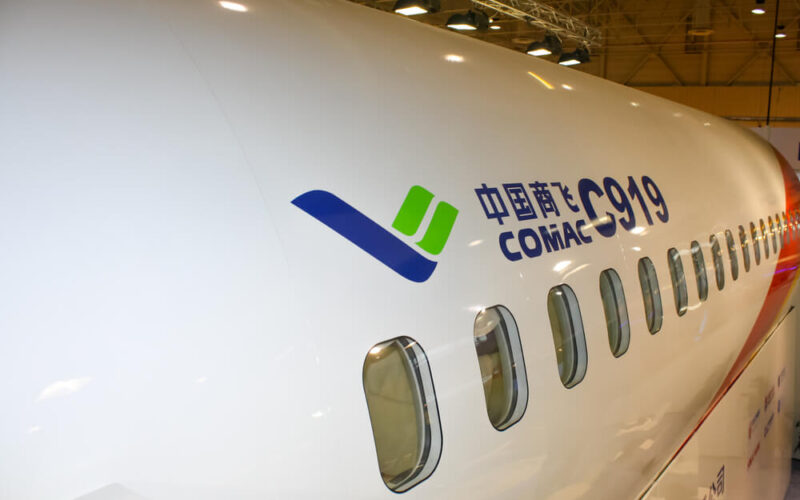As the government of China aims to reduce state reliance on Airbus and Boeing foreign aircraft, the Commercial Aircraft Corporation (COMAC) moves ahead with its intentions to bring a narrowbody jet competitor to the market. COMAC is reportedly set to make the first commercial delivery of the new C919 passenger plane by the end of 2021.
According to local media, the first delivery of COMAC C919 aircraft should happen by the end of 2021, giving the Chinese public the possibility to fly on a new domestically-produced airplane. It is expected that China Eastern Airlines (CIAH) (CEA) would become the first Chinese air carrier to add the newly built C919 to its fleet.
The government of China has been supporting COMAC in an effort to find a spot in a commercial jet market largely dominated by the United States and Europe. COMAC positioned the C919 as a comparable plane to Airbus A320 Family and Boeing 737 narrow-body jets.
Although the C919 is designed by the Chinese manufacturer, some of the critical parts of the new passenger jet are likely to be made by foreign parts providers. The C919 was initially set to be powered by the CFM International LEAP turbofan engine, jointly developed by General Electric and Safran.
However, on January 14, 2021, the Trump administration imposed an investment ban on COMAC due to the alleged ties to the Chinese military, meaning that by November 2021, the US investors will need to pull out their holdings in the now-blacklisted company. The recent ban, if not reversed by the Joe Biden administration, could ruin COMAC’s plans to deliver the C919 in 2021 and halt the development of the new Chinese jet indefinitely.
COMAC launched the development of the C919 in 2008. The production of the aircraft prototype started a few years later in 2011 and the jet completed its maiden flight in 2017. Although the Civil Aviation Administration of China (CAAC) approved the aircraft design on 27 November 2020, the certification has yet to be finalized.

